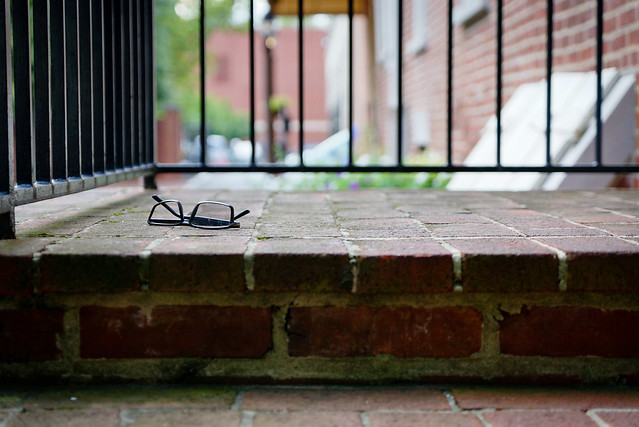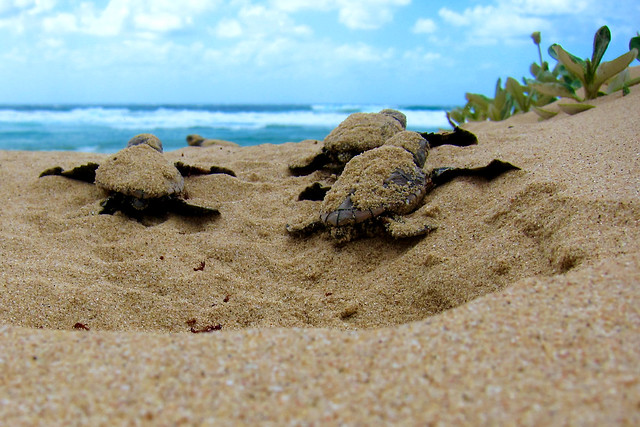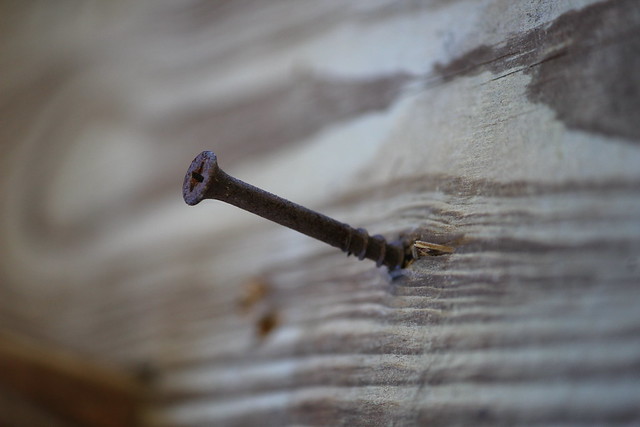
PRACTICE THE GIFT YOU WANT TO BE
All of us with inclinations for tinkering with our own heads and playing around with the structure of our lives seem to be prone to spending at least some time wandering around “looking for ourselves.”
It’s like somehow, in the press of living, we have lost our own “True Self” (a.k.a. “TS”) and like the person who’s misplaced her glasses, we wander around hoping to notice that TS sitting on a shelf or something.

THEORIES AND SYSTEMS AND ALL OF THAT
You could spend several lifetimes and many fortunes testing out all of the different theories and systems and whatnots. (If you’re lucky, you might find the one you can actually live.)
If you do, you’ll be able to use it to shape yourself into whatever pretzel this person or that feels is an effective, useful, and productive mode of being or, just maybe, you might be able to use what you learn to design your very own mode of being that’s just right for you.
The thought does occur to me sometimes that it really is too bad that few of us have several lifetimes to spare and that most of us are still working on our first fortune.
It does seem, however, that looking for a better fit than the one that happens between our one-of-a-kind self and the just-like-everybody-else sort of life we humans tend to live is an aspiration that can lead to many new and interesting ways of getting to our own kind of happiness.

HERE IS ANOTHER ONE
Sportswriter Daniel Coyle wrote an article for the New York Times “Play” magazine in 2007 that sparked his own explorations and wanderings into places around the world where talent, creativity and excellence are fostered exceptionally well.
You can read Coyle’s initial article, “How to Grow a Super-Athlete” by pressing this button:
For a couple of years, Coyle wandered around looking at assorted people, places and systems that consistently and reliably produced champions. He likes calling these places where people’s supposedly innate talents are nurtured and helped to develop and grow “talent hotbeds.”

Then, because he is a writer, Daniel Coyle wrote a book in 2009, THE TALENT CODE: Unlocking the Secret of Skill in Sports, Art, Music, Math, and Just About Everything Else.
The book was well-received. There have been several iterations and expansions on it since then by the author.
And why not? It’s a fine example of “pop psychology” – useable, scientifically based, DIY stuff that can be applied to everyday living with good results.
The book is readable and the writing is clear and down-to-earth. Coyle tells good stories. And, according to him, the steps that are used in the process of enabling the rapid learning of effective skills well are simple and few.
Coyle even throws in a bit about how your brain works when it’s learning stuff and offers suggestions about how you can help it along.
This video, ‘How to Practice Effectively…For Just About Anything,” a TED-Ed short lesson by Annie Bosler and Don Greene published in 2017, pretty much covers and gives a short explanation about that part.
According to the guys who study such things, getting good at doing something is a lot about myelin building. (Don’t know what that is? Watch the video.)
DEEP PRACTICE
My own takeaways from this book were all connected to Coyle’s explanations and life-hacks that surround the concept of “Deep Practice.”
That chapter of the book, “The Three Rules of Deep Practice” is introduced by Samuel Beckett’s advice, “Try again. Fail again. Fail better.” (More than a few very successful companies have gotten a lot of mileage out of that bit of advice.)
Coyle’s three “rules” are as follows:
- Rule One: Chunk it up. Every learnable skill is made up of smaller bits – ways of doing things that work more effectively than other options for doing the same thing. You can suss them out if you look at the processes involved. (If you’re fortunate enough to have a smartypants mentor, it gets even easier.). You can set yourself to learning how to do each part of the process as effectively as possible. Then you put all the parts together.
- Rule Two: Repeat it. Repetition, as any athlete, performer and Maker will tell you, is the key to doing anything well.
- Rule Three: Learn to feel it. This one reminds me of what I learned about “embodying” knowledge from my kung fu si’fu (teacher). It is the process of sinking down what you are learning – the how to move and the sequencing and timings of the moves and so on – into your bones. When you do that, the moves eventually become automatic and a part of how you respond to the world.

NOW, THINK ON THIS: WE ARE ALWAYS PRACTICING SOMETHING
As I was pondering on all this, I stumbled across an affecting TEDxTalk by Santa Barbara mindfulness coach and business consultant Dave Mochel who points to the fact that we are ALWAYS practicing something.
As he says, “practice is how we use our time and energy.”
This is a thought that tends to get ignored in all the how-to’s and tips and hack-notes about getting to a better life and realizing your greatest potential in the books on the self-improvement how-to shelves and blogs like this one.
The video featuring Mochel, “What Are You Practicing Now?,” was published in 2016 by TEDxPasadena Women.
In it Mochel presents a cogent explanation of Deep Practice and he details how consistently combining awareness with deliberate action (even if you’re not so good at it and keep making mistakes and do-overs) can lead to fulfillment, well-being, growth and connection.
At the end of the video, Mochel advises, “Be careful what you practice because you ARE going to get better at it.”
Depending on what you’re practicing, this could be a very scary thought.
Mochel does know what he’s talking about. He spent 25 years as a teacher of neuroscience, physics, human development and leadership in independent schools before becoming a mindfulness coach who works all over the world with individuals, teams and organizations to “develop and maintain healthy and powerful cultures,” it says here.
FINAL THOUGHTS
I do spend a lot of time reading and listening to enlightening information and encouraging words about human potential and creativity. A lot of that stuff is certainly inspiring.
It does occur to me, however, that the topic is such a fascinating one that there are always going to be more and more thoughts generated about it by all kinds of motivational experts, life coaches, guys in white lab coats and storytellers.
All of these thoughts join all the other ones thought up by wise guys down through the ages.
The variations and techniques for developing and using our inherent and often dormant abilities and propensities will continue to proliferate like those mind-boggling fractal figures that spin out and spread out in ever-widening complexity. (Oy!)

My own explorations into Deep Practice have presented me with a glimpse at whole other ways of thinking about human potential. They lead me to ask some uncommonly intriguing questions, like:
What if it all really is not about the gifts you were “given” when you came into this world?
What if the Real is that YOU are the gift?
What if the human presence in this world is really about how each of us humans can set about building ourselves into the gifts to the world that we each want to be?

Here’s a poem:
HO’OKUPU (Gift)
I dance on the edge of a pit
For a goddess of fire and flame.
The heat of the sun on the stones
Sears through my bones,
And a passion of blood flows
More swiftly in my veins,
Pushed along by the sulfur-tinged
Breath that flows in and out of lungs
Seared by the stopped-time desolation.
Honored lady, my hands are empty.
I come with no gift for you
Except for this dance
By an ignorant body that is a legacy from ancestors
Who I can feel behind me, walking
To an age-old chant that
Reverberates, rings in my ears;
Except for this feeble brain
That tries to make sense of a different space and time,
Where magic and mana is paved over
And ringed with “No Trespassing” signs;
Except for this tired heart
That lives in exile, longing for a place lost in time.
There, now…
I can feel my heart opening wide
Pulsing there in surrender to
The echoes of the radiant chaos that is your beauty.
The pit yawns to my left.
To my right, a cave rises up out of the tortured stone,
Formed by turbulence and time,
It is filled with secret whispers that nudge
The edges of awareness,
Swirling through the molten rock that flows
Through the depths of my na’au like a river of liquid fire.
And, look, what is this?
Behind me, Dragon watches,
A smug twinkle in her eye.
I hope she is proud of me.
By Netta Kanoho
Header photo credit: “Gift” by Houman Khosrozadeh via Flickr [CC BY-NC-2.0]
……
SOME OTHER POSTS TO EXPLORE:
(Click on each of the post titles below and see where it takes you…)
……
Thanks for your visit. I’d appreciate it if you would drop a note or comment below and tell me your thoughts…..
16 thoughts on “PRACTICE THE GIFT YOU WANT TO BE”
Very insightful Netta,
I didn’t know that Coyle went through a lot to write his book, I knew about the Talent Code (It’s pretty famous) and I implement it a lot in whatever I do today, especially at work where the environment is fast-paced and I need to adapt quickly in order to stay ahead of my game.
The soft psychology play is nothing new but it’s something most of us would not bother to learn because it’s a broad subject and Coyle managed to shrink it down and focus on the most important aspects. Thanks for sharing this with us, do you happen to know similar books on productivity which you think we all should check out? 😀
Thanks for stopping by, Riaz. I do appreciate your sharing your thoughts.
My own favorite, of course, is Mihaly Csikszentmithalyi’s classic FLOW: The Psychology of Optimal Experience (maybe ’cause I love that guy’s name). It seems to be the book upon which all other modern books on productivity are built.
Gary Keller’s THE ONE THING: The Surprisingly Simple Truth Behind Extraordinary Results absolutely drills in one common-sense idea that we problem-solvers and fix-it folks always tend to forget: You gotta do one thing at a time. (Actually, it seems like that one thought is pretty much the whole thing.)
A surprisingly helpful book is THE WILLPOWER INSTINCT: How Self-Control Works, Why It Matters, and What You Can Do to Get More of It, by Kelly McGonigal, PhD. It’s sort of like opening the hood of your car and poking around in it to get the thing to speed up. The good doctor teaches a course on “The Science of Willpower” at Stanford University.
I could go on, but, nah. Those should be a good start. (You probably already have your own favorites.)
Thank you for asking, Riaz.
Please do come again….
This made for good reading for me. I think that our desire comes from a bigger place. Sometimes we know what we desire but are not even sure why. I agree with you that it is pulling back from what is going on, and being aware of what we are feeling is the biggest step into living our vision. In this way we can see where our habits are holding us back and decide what new habits can move us forward. Thank you for this discussion. My type of article.
Thanks for the visit, JJ. I enjoyed reading your take on the explorations in the post. I especially like your thought that “being aware of what we are feeling is the biggest step into living our vision.” That feels exactly right to me.
All of the advice and other-people thoughts may point out good directions to try, but it is our own feelings that lead us to where we most want to be. It is a good thing to pay attention to what Hawaiians call our “na’au” — our guts — which they say is the seat of all of those feelings. Thanks!
Please do come again.
We tend to get what we deserve in life. Meaning that life doesn’t just hand us Success. We have to go and earn it. And then once we have built up our skills, through consistent practice we are in a position to achieve our goals.
It really comes down to your habits. A skill can only be learned through repetition. And practise. Therefore your daily habits are what will give you the skill to be worthy of the thing that you want to.
Jake, thanks for the visit and for sharing your thoughts. I like the way they trend.
Please come again….
As a social science student, I find this book review really reachable and understandable when it comes to discovering thyself.
Over the years, for some reason, I’ve found that people who are struggling in life, often tend to release their sorrows through poetry; I do as well. The writing process of doing said thing can actually lead to discovering yourself and your identity as what your life meaning is.
Stephanie, thanks for your visit and for sharing your thoughts. I agree that poetry-writing is particularly useful in figuring out what you are thinking and feeling.
Please do come again.
This has been an inspirational post. Thank you very much! I’ll check Daniel Coyle’s book “The talent code”. Applying these discoveries in our daily life will surely render results.
I want to focus in efficient practice. That has been one of my goals for this 2020. Not how many hours I practice (although that’s important) but how I practice during those hours.
Paolo, thanks for your visit and for sharing your thoughts. I do agree that how you practice is especially important when you are developing and evolving your skills. A good goal!
Please do come again.
This has been a really deep post, and a really good read for me today. It really made me think about how I’m living my day to day life and constantly rushing through things without giving a 2nd thought about slowing down and actually finding my ‘True Self’.
Also like they say, practice makes perfect. The key thing is how do you ‘practice’, where the 3 rules by David Coyle really works because I have personally done it before without even knowing it! The most recent example for me was actually picking up the habit of exercising and jogging – and now I’m about 7 months in constantly practicing these rules and still going strong.
Lastly, thanks for the great recommendation by David Coyle. Definitely going to pick up a copy and start reading this book soon!
Terence, thanks for the visit and for sharing your story. I am really pleased that the post was helpful to you.
It’s a funny thing. As I explore the things the guys who study human behavior say, I realize more and more that everybody probably does know how to do the stuff the guys in lab coats focus on, the things they say work. I guess us ordinary folks just need someone to point them out to us.
Please do come again.
Thanks for sharing this article and video. I learned a couple of new things and a lot of things I was already aware of before. But unless you remind yourself of who you are regularly, then it can be all too easy to forget these things and even forget who we are. Especially in a world full of expectations and bustle.
Kwidzin, thanks for your visit and for sharing your thoughts. I do appreciate it.
Please do come again.
It is true that the things we become don’t happen by accident. An accomplished acrobat can’t merely admire other athletes and become proficient in acrobatics, rather they need to practice regularly to build the skills that make them the pro that they desire to be.
I like the thought that we are always practicing something — it’s best to make sure it counts!
I agree with you, Aly. Indeed, it would be a good thing to be mindful of what we are practicing in our everyday life. It’s like the thing one of my aunties used to keep telling me: “Stop making that face! What if it gets stuck that way?” [Yikes!]
Please do come again.